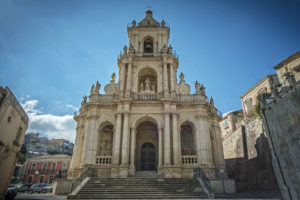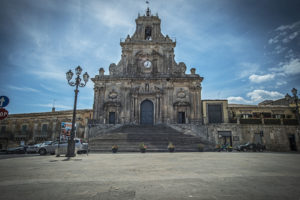The two main churches of Palazzolo Acreide, the Church of San Paolo (St. Paul) and the Church of San Sebastiano (St. Sebastian), are excellent examples of the particular late Baroque style.


They stand out from the other buildings in the town and hold particular significance.
Each with their own style, they form a theatrical setting that characterises the town space, so much so that their surrounding districts are named after them.
The great value of the two religious buildings is given by the interesting architectural features and the rich, elaborate decorations preserved inside. Both were rebuilt after the 1693 earthquake to demonstrate the wealth possessed by the local confraternities.
Religious feasts are very popular in Palazzolo Acreide! They take place from June to October and are dedicated to the town’s patron saints.
The feast of
St. Paul the Apostle
(29th June) ) has very ancient origins, is internationally celebrated and attracts thousands of worshippers and tourists every year. The same can be said of the feast in honour of
St. Sebastian
to whom almost the entire month of August is dedicated.